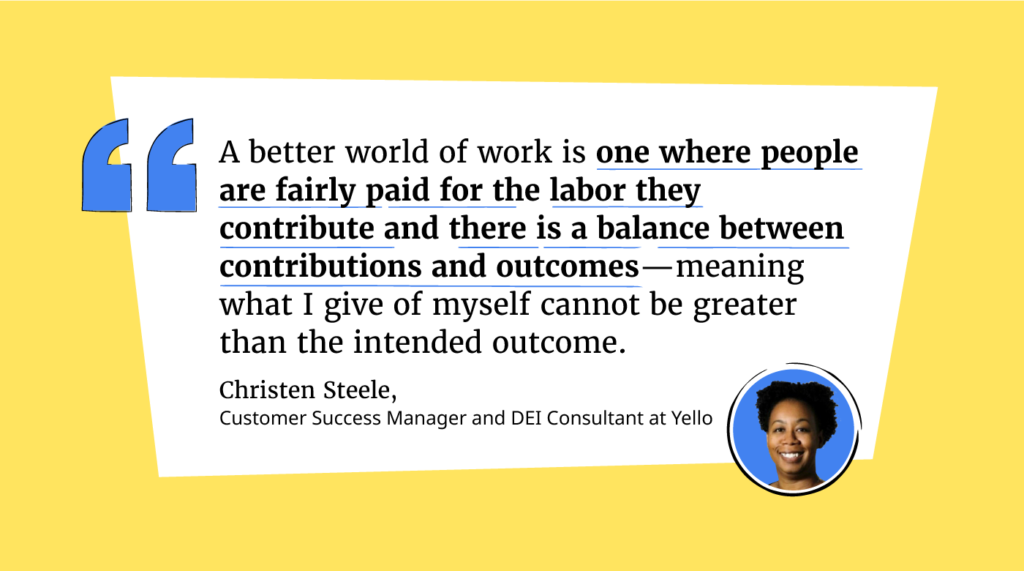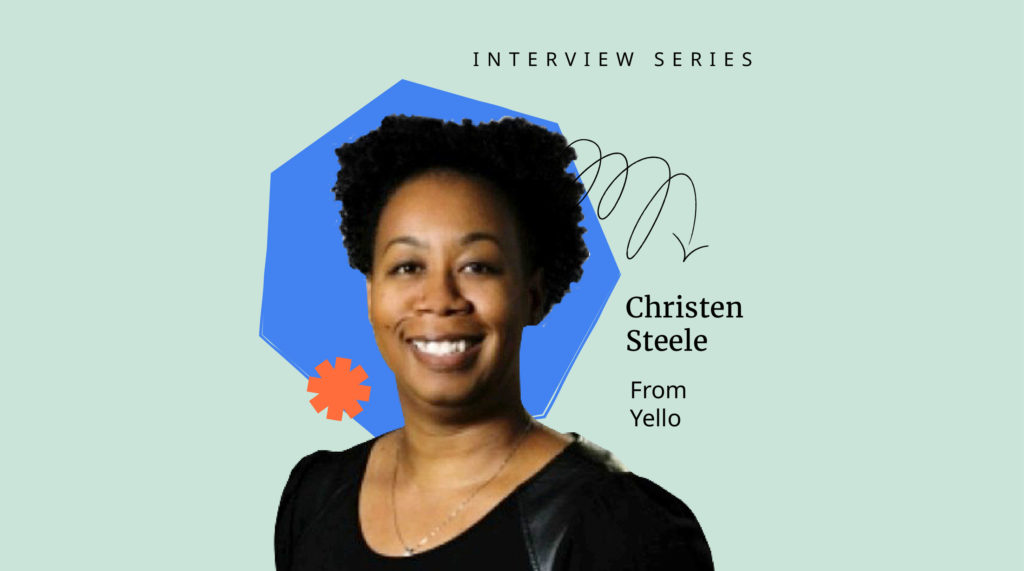We’re passionate about the world of work, and how we can make it better. To help satisfy our curiosity, we’ve launched an interview series where we pick the brains of experienced leaders, business owners, managers, and individual contributors to get their thoughts on how we can collectively build better workplaces.
We’d love to get to know you a bit better, tell us a bit about your backstory.
You could say I have always been idealistic and believe in the human capacity for altruism—how can I make a difference or help someone else beyond myself....against all historical evidence that says otherwise?
Studying People, Places, and Cultures through the International Affairs program as an undergraduate student I started and have continued the journey of building meaningful relationships by connecting to others.
As the child of two educators, and a family full of educators, the gene to help others was fully ingrained in us. It’s also where my passion for lifelong learning comes from. So my journey is one rooted in all of the above, from athletics to refugee resettlement to higher education to a University Recruiting Consultant.
If we were to ask a friend to describe your personality to us, what would they say?
They'd probably say that I'm ambitious and driven. It's what makes me want to tackle the greatest challenges and shoot for the stars. And although it drains me, I'm still a people person. My friends know I'm likely to make a connection or start a conversation in a queue at the coffee shop, grocery store, or just about anywhere
Thinking back to your career journey, what’s an interesting story that stands out?
Walking into graduate school orientation, I remember being told that you will likely at some point in your career be overwhelmed by giving too much of yourself and you will need an outlet. It was the best piece of advice that I've carried with me to this date. I continue to dance when and where I can, and I utilize counseling when needed.
What’s the most impactful lesson you've learned over your career thus far?
"Start where the client is."
The phrasing came from a social work colleague, but the lesson started when I was only 9 years old helping a family of Cambodian refugees in my apartment complex learn English with my father (a 4th grade teacher). It's how I start every professional partnership, or how I previously taught students over the years.
Thanks for giving us some insight into who you are! Let’s jump into things. When you hear the phrase “build a better world of work”, what comes to mind?
I envision a safe environment that's inclusive of all. Where we're truly able to bring our authentic selves to work without fears.
At the same time,

This also means supporting all employees culturally. As an HR intern way back in the day, I was able to help plan workplace celebrations globally for staff to celebrate traditions and beliefs of the cultures represented in our portfolio and the employees themselves. This was beyond the mainstream holidays, mind you.
For you, what’s the main blocker you see as standing in the way of building a better world of work?
The inability to change and adapt what we think we know with what is actually possible. This is one thing that the pandemic has truly taught us. The ability to enact changes to the workplace is actually quite easy when there's either no other way to operate, or it's the right thing to do.
Leadership has to be involved and show the business why this is the right thing to do and also participate in these efforts, otherwise, the buy-in factor is missing and people will know the workplace still isn't a place where ideas can be shared nor a community built upon respect.
What steps do you recommend someone take in order to put your idea (from the previous question) into action?
Everyone can start by ensuring that their leadership is creating the space for safe environments at work, that there is a strategy for inclusive hiring and business practices, and that education starts within.
During town halls, ask the tough questions. Or contact HR and let them know you have ideas. If groups don’t exist for safe environments, create them.
Educate yourself and share with others—this can be both active and passive. For example, when asked “what did you do this weekend?”, share a bit of knowledge you’ve recently learned and from what source.
Can you share one thing you’ve experienced, seen, or read about that is leading us towards a better world of work?
I remember reading an article from Inside Higher Ed about student employees around the nation who are unionizing for fair wages and fair treatment as employees. These are the students who are keeping your child safe in college, who are tutoring, who are TAing, and who drove COVID-infected students to hotels with very little hazard pay. I'm thrilled with GenZ for pushing these efforts forward and bringing them into the light for a meaningful and thoughtful discussion. Just because things have always been done a certain way or these roles are replaceable, doesn't mean we can’t have a dialogue to hear the students out.
I’m curious, thinking about building a better world of work, is there a company and/or leader who stands out to you as someone we should follow? If so, what are they up to?
One of the things I've learned in my career is to not pin my hat onto others, especially in this space of creating a better world. We're all works in progress, especially as we are in various stages of implementation and improvement. Just because a company is on the "top places to work" from the Disability Equality Index, it doesn't necessarily mean that all staff are treated equitably or that hiring managers have figured out how to hire with inclusivity and intentionality at the forefront for other underrepresented groups.
At the end of the day though, I would suggest looking at employers to see:
- If they make these lists
- How transparent are they about their strategies and spending to make improvements
- Is there a public quarterly report where this information is included
- And finally, look to see where leadership has decided to place their business dollars, and in some cases personal dollars.
You can then make your own informed decisions about this world we want to see, challenge those who are not there yet to do better, and/or share how they plan to improve.
Thank you for adding your voice to People Managing People’s interview series on How to Build a Better World of Work!
Add Your Voice To The Conversation
Join our interview series and share your ideas for how we can build a better world of work!

